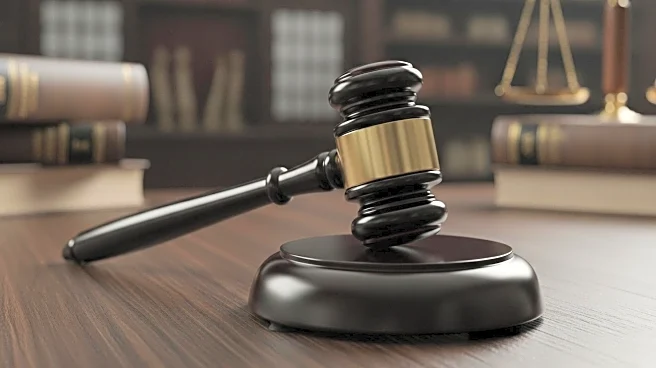What's Happening?
Sean 'Diddy' Combs has been sentenced to 50 months in prison on charges related to prostitution. The sentencing was reported by CBS News, with Jessica Levinson providing insights into the judge's reasoning. The case has attracted significant media attention due to Combs' high profile in the entertainment industry. The judge's decision reflects the legal system's stance on prostitution-related offenses, emphasizing accountability and legal consequences for such actions.
Why It's Important?
The sentencing of Sean 'Diddy' Combs underscores the legal and societal implications of celebrity involvement in criminal activities. It highlights the justice system's approach to handling cases involving high-profile individuals, reinforcing the principle that fame does not exempt one from legal accountability. This case may influence public perceptions of celebrities and their responsibilities, potentially impacting the entertainment industry and its stakeholders. Legal experts and advocacy groups may use this case to discuss broader issues related to criminal justice and celebrity culture.
What's Next?
Following the sentencing, Combs may pursue legal avenues such as appeals or requests for sentence reduction. The entertainment industry and fans will likely react to the news, with potential impacts on Combs' career and public image. Legal analysts and media outlets may continue to cover developments in the case, examining its implications for celebrity justice and legal standards. The outcome could influence future cases involving public figures and shape discussions on legal reform and accountability.
Beyond the Headlines
The case raises ethical questions about the influence of celebrity status on legal proceedings and societal attitudes towards crime. It may prompt discussions on the role of media in shaping public perceptions and the responsibilities of public figures in maintaining ethical standards. Long-term implications could include shifts in legal practices and public expectations of accountability, influencing how similar cases are handled in the future.











